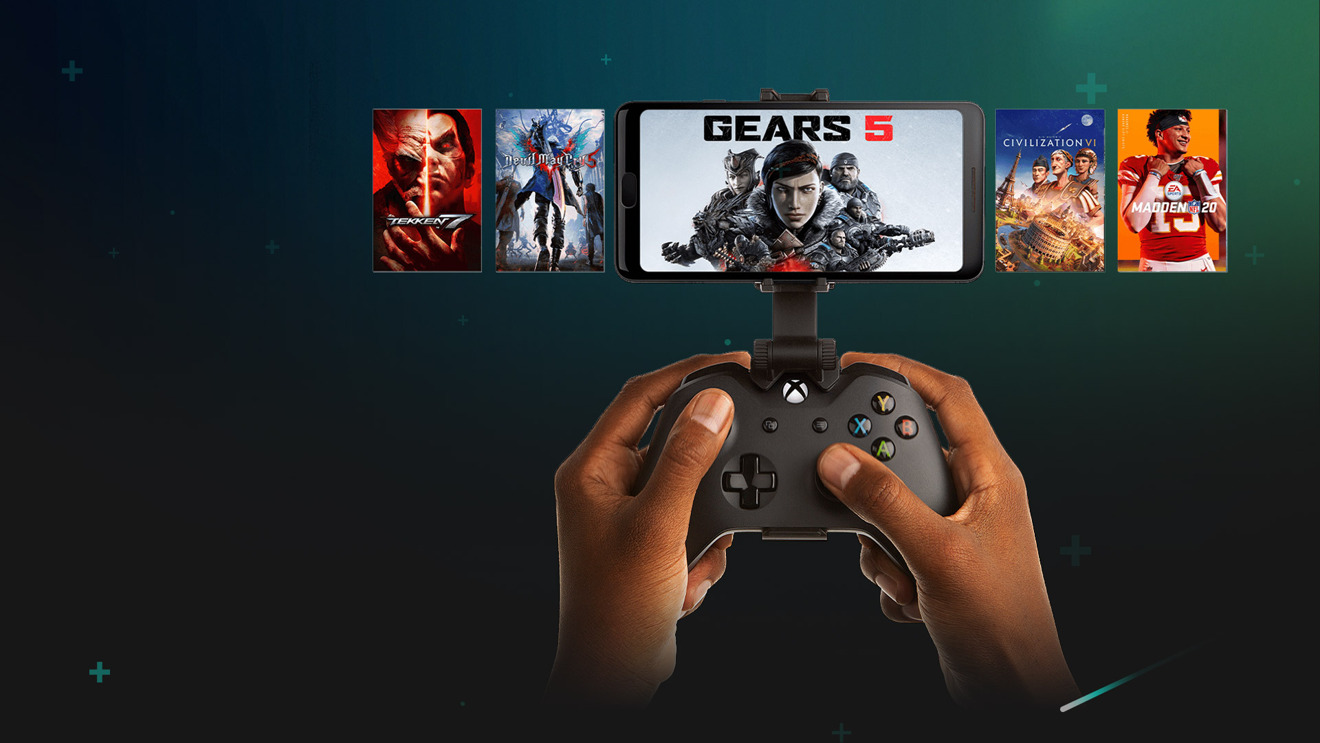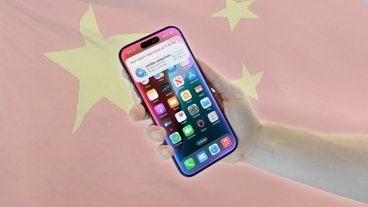Apple's policies have effectively spiked an entire category of gaming apps that are no different from a security, technical, or content review standpoint than controlling a Netflix movie with a game controller.
Microsoft's Xcloud and Google's Stadia are game streaming platforms, coming soon to non-Apple platforms. With both services, instead of a game's code running on the device, the game code is run on a server farm to a user's device, with only H.265 video streaming to the user's device, and the user's inputs sent back to the game's servers across the Internet.
The concept has been tried for a few years, but has only started to get real traction. The concept allows graphically demanding games to be hosted and processed elsewhere, and run on much lesser hardware that would ordinarily be needed.
Using this model of game streaming only requires the user's hardware to decode a H.265 video stream, parse the user's inputs — and that's all. There are no massive app downloads associated with the gameplay, and no code beyond the host application running on the host device.
Both Xcloud and Stadia have been in testing for a long time. How useful they are to any given gamer depends on internet speed and latency, but for a low monthly fee, a user gets access to an entire array of games — with this library aspect much like an internet-streaming Apple Arcade, aimed at a different segment of the gaming audience. For instance, Microsoft's flagship Halo franchise is available on Xcloud.
But, despite being originally announced for the Mac by Steve Jobs more than two decades ago, Halo's Master Chief won't be returning to Apple's platform any time soon. Instead, Apple's main rival in the high-end smartphone market, Samsung, has embraced Microsoft's Xcloud.
Back-and-forth between Apple and Microsoft
After a day of heat on social media, Apple made clear why Xcloud wouldn't see release on iOS or iPadOS.
"Our customers enjoy great apps and games from millions of developers, and gaming services can absolutely launch on the App Store as long as they follow the same set of guidelines applicable to all developers including submitting games individually for review and appearing in charts and search, Apple said in a statement.
A few hours later, Microsoft fired back and put the blame for no iOS or iPadOS launch squarely where it belongs — on Apple's policies.
"Apple stands alone as the only general purpose platform to deny customers from cloud gaming and game subscription services like Xbox Game Pass," a Microsoft spokesperson said. "And, it consistently treats gaming apps differently, applying more lenient rules to non-gaming apps even when they include interactive content."
The reasoning behind the rejections and refusals by Apple are clearly spelled out, and have been for about two years. But, the rule has always been arbitrary, and very blatantly anti-competitive.
Apple's ban is a targeted block on game streaming subscription services
Like we mentioned a bit earlier, no code is being downloaded or run on the devices beyond what would be already vetted in the app hosted on the app store. So, there are no security issues induced by third-party code running on a device. Apple uses the third-party downloadable code ban and security concerns to block programming compilers, and emulators from the platform.
Game streaming apps using the H.265 streaming method are fine, though — assuming you're playing on your own network. There are approved apps allowing users on a home network to stream Steam games from a PC on a user's network, or console games playing locally. Ironically, this method would allow a user to play games from the Xbox Windows Game Pass at home, which has a larger library that the Xcloud service draws from.
Streaming apps for remote PCs across the internet using the same H.265 and controller or keyboard inputs across the internet are also allowed. Shadow, for instance, is a solid subscription service that gives you access to whatever you've stored on a remote high-performance PC in Shadow's data centers.
Netflix also streams video to the iPhone or iPad with H.265 codecs. Yet, Apple doesn't feel the need to review all the content that Netflix, Disney+, CBS All-Access, a few different flavors of HBO, or similar, offer.
To be precise, the Apple ban is very specifically on user-controlled H.265 video from a game streamed across the internet. It doesn't impact the very same games, provided from the very same services, when streamed from a computer that you own or access to an iPhone or iPad.
You just can't play that game on your iPhone or iPad streamed from the cloud.
Anti-trust, and anti-consumer
The current excuse that the content must be vetted by Apple makes no sense, because no other kind of content, be it video, audio, or "print" material, is similarly vetted. There are no potential user security issues, since the only thing the App will do is authenticate logins, display the H.265 game video stream, and send the user's inputs to a remote server. Arbitrary code from outside sources won't be run on the device, so that doesn't fly as an excuse for a ban, should Apple alter course on the ban.
This ban is actively and arbitrarily abusive to consumers who want to play something that isn't an Apple Arcade game, or mobile-first. But, there is more at stake.
Apple's Tim Cook was just on the governmental stand for the first of what is hopefully many testimonials about big tech antitrust behavior. At those hearings, Apple's 30% and 15% App Store cuts were briefly mentioned. Maybe the cuts are too high and maybe they aren't — and the ban on telling users that they can subscribe outside the app is iffy. On much of this, your point of view very much depends based on which side of the consumer/developer divide you sit on.
In other antitrust issues, it's hard to say that Apple unfairly favors its own services in App Store search, because sometimes it does, and most of the time it doesn't. But, given the wiggly line that Apple has drawn as an acceptable use border for game streaming apps, it's hard to see this ban as anything else than Apple wanting to defend its revenue stream from Apple Arcade and other games.
This ban on Stadia, Xcloud, and any future service like it, is about as clear as it can get. It is clearly targeted at blocking Apple's main competitors. We'll leave the assessment if it is truly an anti-trust matter to the "experts," such as they are.
 Mike Wuerthele
Mike Wuerthele







-m.jpg)






 Charles Martin
Charles Martin
 Christine McKee
Christine McKee
 Wesley Hilliard
Wesley Hilliard
 Malcolm Owen
Malcolm Owen
 Andrew Orr
Andrew Orr
 William Gallagher
William Gallagher
 Sponsored Content
Sponsored Content








197 Comments
I agree with this article. I usually defend Apple's actions, but not this time. This is anti-consumer.
Meh. Who cares? If you’re wasting your life playing games, you have your priorities wrong.
Apple is not a monopoly and has the right to set their policies. Proof is, xCloud will work with Android.
So, the choice is clear. If you wish to stream games on your mobile device, you go for Android. Period.
Companies have the right not to go in certain areas. Should it be a mistake, it will be their bad. But please, stop this “anti-consumer” nonsense!
First remotely playing games, next it will be apps. What’s to stop companies from creating remote (I.e. “steamed”) app stores disconnecting Apple’s control and user privacy?
This is a very slippery slope. I can understand Apple taking this approach.
Like others are saying, if you don’t like it move to Android.